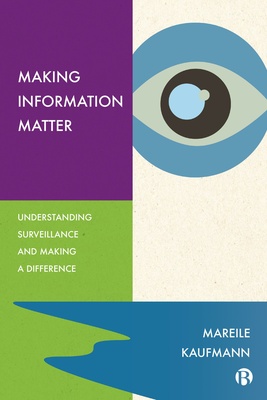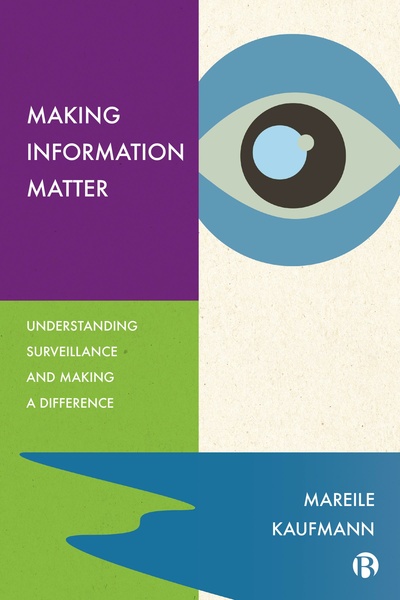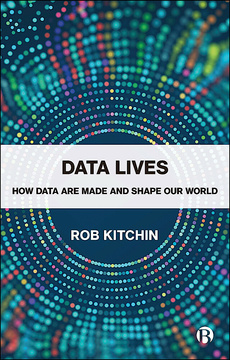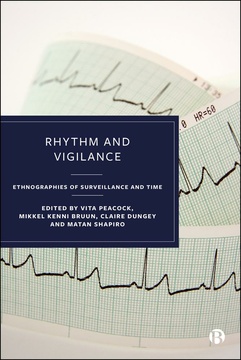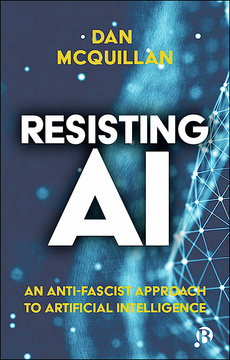Published
Oct 15, 2024Page count
186 pagesISBN
978-1529233582Dimensions
234 x 156 mmImprint
Bristol University PressPublished
Jul 20, 2023Page count
186 pagesISBN
978-1529233575Dimensions
234 x 156 mmImprint
Bristol University PressPublished
Jul 20, 2023Page count
186 pagesISBN
978-1529233599Dimensions
234 x 156 mmImprint
Bristol University PressPublished
Jul 20, 2023Page count
186 pagesISBN
978-1529233599Dimensions
234 x 156 mmImprint
Bristol University PressOn the blog:
Genomic data has gone big. What does it matter?
Information matters to us. Whether recorded, recoded, or unregistered, information co-shapes our present and our becoming.
This book advances new views on information and surveillance practices. Starting with a methodology for studying the liveliness of information, Kaufmann provides four empirical examples of making information matter: association, conversion, secrecy, and speculation. In so doing, she presents an original and comprehensive argument about the materiality of information and invites us to investigate, and to reflect about what matters.
This is a go-to text for scholars and professionals working in the fields of surveillance, data studies, and the digitization of specific societal sectors.
"Making Information Matter can help remind us of our hopes for information and re-envision how it actually appears in our society." LSE Review of Books
"An unusually incisive and pragmatic approach to what it means to live with information. Synthesizing thinking from a huge range of disciplines and domains from our worlds of plural information, the book effectively provides a guide to how to live, situate, engage or extricate oneself." Adrian Mackenzie, Australian National University
"A breath of fresh air, a book about data, but uniquely framed as the lively matter of information -- in the sense of 'being in-formation' - and always bringing us back to what makes all this information matter." David Ribes, University of Washington
"A rich resource for anyone concerned with how information – understood as always material and relational – comes to matter, its dominant formations as data, and how data could be made differently." Lucy Suchman, Lancaster University
"An intriguing account of how data becomes information and is then taken up in material interventions of surveillance and control. By drawing on a wide range of literature, the book demonstrates the complex and ethical relations involved in making information matter in different worlds." Evelyn Ruppert, Goldsmiths, University of London
"If I had to name one book for understanding ‘information’ in the world today, this would be it. Kaufmann’s work is marvellously wide-ranging while maintaining intellectual rigour; and it’s fun." Geoffrey C. Bowker, University of California, Irvine
"Professor Kaufmann has produced a fascinating book. One might even call it a brave book for grappling with the productive tensions inherent in contemplating the materiality of information – something we almost instinctively conceive of as being immaterial." Kevin D. Haggerty, University of Alberta
Mareile Kaufmann is Professor of Criminology at the University of Oslo.
1. Introduction
2. Understanding making-information-matter together
3. Studying materializations – a methodology of life cycles
Interlude: Four practices of making information matter
4. Association
5. Conversion
6. Secrecy
7. Speculation
8. The ethics of making information matter







